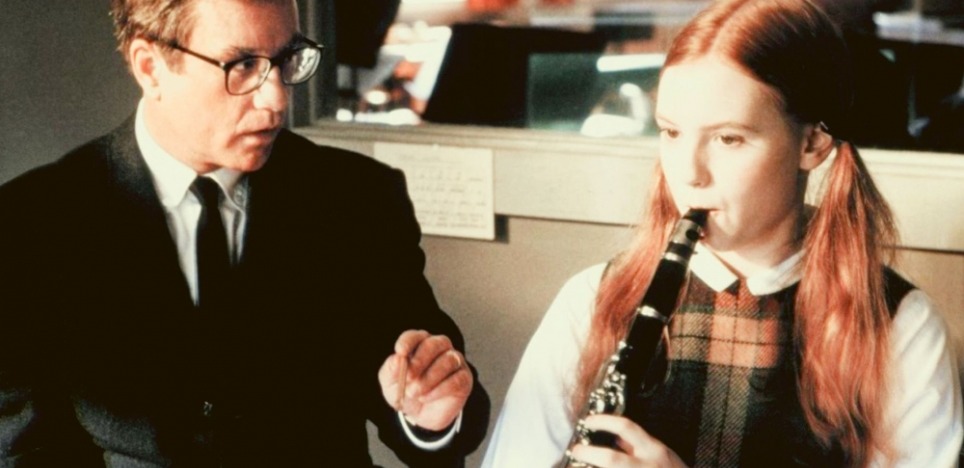In Writing from the Center, Scott Russell Sanders observes: "Opus, the Latin word that we apply to musical compositions, has the twin meanings of work and riches. We hear it in operate and opulence. Good work enriches the world and also enriches the worker; it draws on our creativity, our ability to imagine actions before carrying them out, and our freedom to act on those /uploads/features/images, guided by intelligence and skill. The medieval guilds of carpenters, weavers, dyers and millers spoke of their trades as mysteries . . . When the freedom and craft have been squeezed out of work it becomes toil, without mystery and meaning, and that is why many people hate their jobs. . . . Toil drains us; but good work may renew us, by giving expression to our powers."
The 1995 movie Mr. Holland's Opus is about a man who dreams of leaving his mark upon the world with a symphony of his own creation and winds up making music of a different sort altogether. When Mr. Holland begins teaching music in a Portland high school, he expects to be able to continue composing. His yearning and his struggle to fulfill it are familiar to many of us. We start out with big dreams for something we care passionately about but we find that we are never able to devote ourselves to it full time. Think of all the actors who work as waiters or cab drivers and never are able to make a career out of what they love. Some people can only pursue their passions part time or during their vacations.
Mr. Holland slowly and patiently eases into his job teaching music appreciation, conducting the school orchestra, and leading the marching band. He faces the challenges of bored students and a vice principal who seems to derive pleasure in being a difficult person in his life. But he persists and finds ways to reach the students. His job becomes, as Sanders puts it, "good work that enriches the world and the worker as well." There are many magical moments in this wonderful drama that demonstrate the meanings of the word opus. This Values & Vision Guide explores some of them. For a review of the movie and a plot synopsis, click here. The film runs 145 minutes and is rated PG for mild thematic elements.
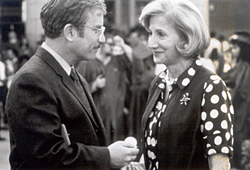
1. Do It to the Best of Your Ability
"It should be your privilege and joy to do every job that is given you to the best of your ability. Not for the reward, not for recognition, not for gratitude, but because the job is to be done, and the only way you can fulfill yourself is to do it to the best of your ability," Joel S. Goldsmith writes in The Gift of Love.
- What is your initial response to Mr. Holland and his reasons for taking a job teaching musical appreciation? Do you agree with Helen Jacobs, the principal, when she criticizes his attitude? Why or why not?
- Have you ever taken a job just to pay the bills so you could work on your passion in your spare time? Or do you know someone else who has? What happened and what was learned? Have you ever had a job that your heart was not really in? Did you do it to the best or your ability or not? How did that make you feel?
2. The Place of the Squeeze
"This place of the squeeze is the very point in our meditation and in our lives where we can really learn something. The point where we are not able to take it or leave it, where we are caught between a rock and a hard place, caught between the upliftedness of our ideas and the rawness of what's happening in front of our eyes — that is indeed a very fruitful place," Pema Chodron writes in When Things Fall Apart.
- What scenes in this drama best convey Mr. Holland as being caught in "this place of the squeeze"? Discuss what he learns about himself, teaching, his students, or his family life as a result of being in these tight spots.
- When was the last time you found yourself in "this place of the squeeze" in your work? How did you handle the pressure? Share a spiritual practice that has helped you profit from difficult situations and see them as fruitful.
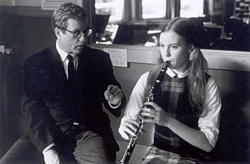
3. Making Others Feel Good
Rebbe Nachman of Breslov in The Empty Chair says: "It's easy to criticize others and make them feel unwanted. Anyone can do it. What takes effort and skill is picking them up and making them feel good."
- Mr. Holland is very kind to five different students in the story. He goes beyond the call of duty and reaches out to them in a deeply personal and loving way. Which one touched your heart the most? Why?
- When in your work environment do you have opportunities to make others feel good through your acts of kindness? What obstacles make this difficult? Identify a spiritual practice that can serve as a spur to selfless acts at work.
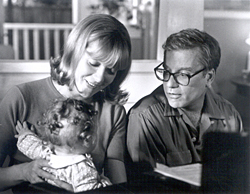
4. Working Hard and Making Time for Those We Love
In Living Buddha, Living Christ, Buddhist teacher Thich Nhat Hanh writes: "We seem to take refuge in our work in order to avoid confronting our real sorrow and inner turmoil. We express our love and care for others by working hard, but if we do not have time for the people we love, if we cannot make ourselves available to them, how can we say that we love them?"
- Iris gets very upset with her husband when he stops working on his symphony and spends all his spare time with his students. Later, she charges that he is more interested in his students than he is in his own son. Do you think her criticism is fair? Give a reason for your answer.
- What have you found to be the best way to balance your commitment to your work and your obligations to those you love? Talk about someone you know who seems to have found a way to balance his or her work and home life.
5. Learning and Growing at Work
In In Mindfulness and Meaningful Work, edited by Claude Whitmeyer, Tibetan Buddhist Tarthang Tulku writes: "Caring about our work, liking it, even loving it, seems strange when we see work only as a way to make a living. But when we see work as the way to deepen and enrich all of our experience, each one of us can find this caring within our hearts, and awaken it in those around us, using every aspect of work to learn and grow."
- At what point in the drama does Mr. Holland begin to shift his approach and understanding of teaching? Who is the chief beneficiary of this transformation?
- What spiritual teachers, books, or personal experiences have taught you that your work offers you the perfect workshop for your development as a full and rounded human being?
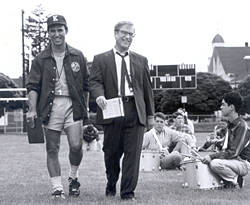
6. Do What Is Fire Inside You
In Addicted to Hurry, Kirk Byron Jones quotes theologian Howard Thurman: "Do what is fire inside of you. More than anything else, the world needs persons who are on fire."
- What one scene in the drama best illustrates Mr. Holland's passion?
- What would you say to those who believe that people lack passion in these times? When was the last time you let your passion burn as a fire at work? What were your feelings? What did that passion lead to or set in motion?
7. Work Is Love Made Visible
"When you work you are a flute through whose heart the whispering of the hours turns to music. To love life through labor is to be intimate with life's inmost secret. All work is empty save when there is love, for work is love made visible," Kahil Gibran wrote in The Prophet.
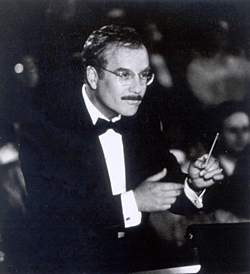
This guide is one in a series of more than 200 Values & Visions Guides written by Frederic and Mary Ann Brussat. Text copyright 2004 by Frederic and Mary Ann Brussat. Photos courtesy of Hollywood Pictures/Buena Vista HOme Entertainment. This guide is posted as a service to visitors to www.SpiritualityandPractice.com. It may not be photocopied, reprinted, or distributed electronically without permission from Frederic and Mary Ann Brussat. For this permission and for a list of other guides in the Values & Visions series and ordering information, email your name and mailing address to: brussat@spiritualrx.com.
